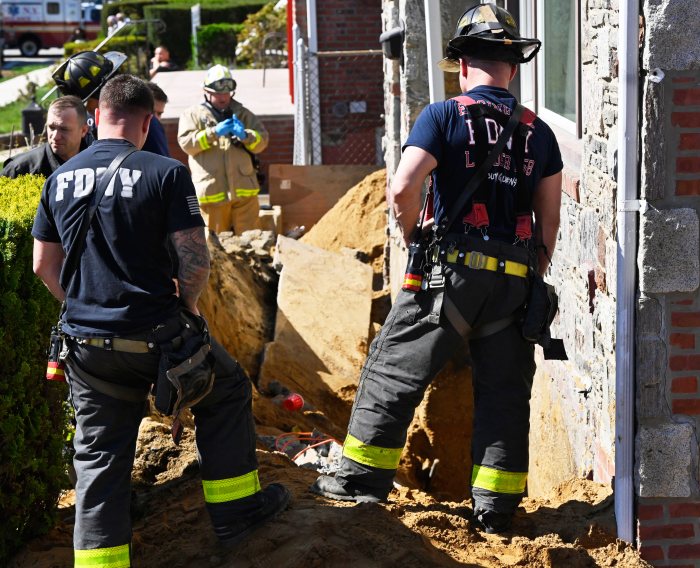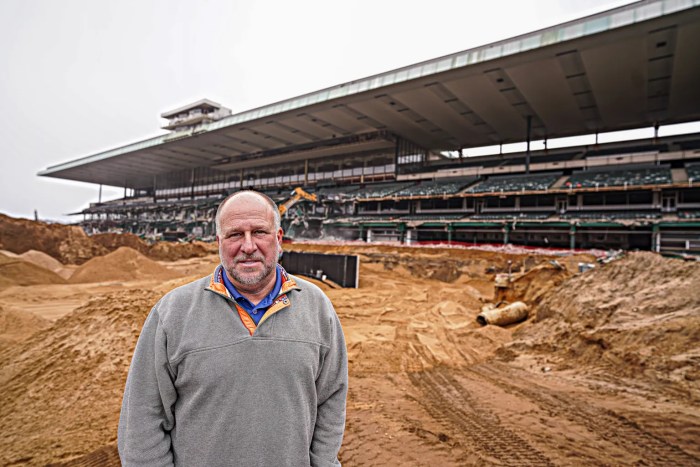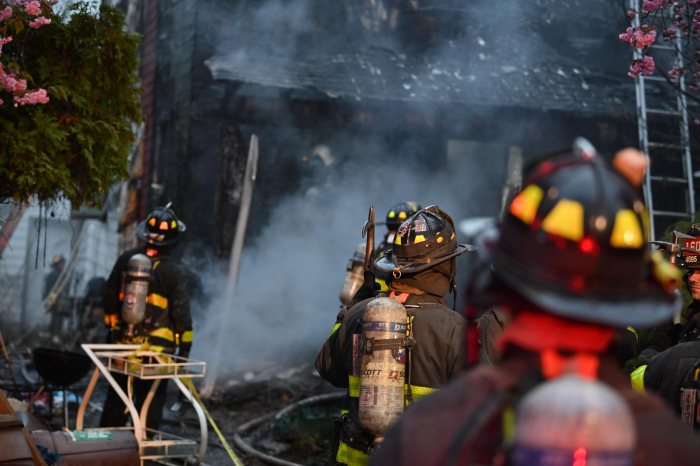By Tom Momberg
New York City Housing Authority Chairwoman Shola Olatoye faces a unique challenge in the city and in Queens: updating an outdated model for public housing while also trying to make up revenue lost because of cuts in federal funding.
Olatoye visited the Editors Roundtable at the Community News Group’s Brooklyn offices last week to outline the progress she has made since being appointed by Mayor Bill de Blasio in February 2014.
She said that over two-thirds of NYCHA’s housing stock is more than 60 years old, which leaves the agency with $17 billion in capital needs.
“Our plan is based around updating our funding model and operating model—and underlining this effort is the question of how we interact with our residents,” Olatoye said.
A lack of funding is one of the biggest issues, which has resulted in tangible neglect of public housing in every corner of the city.
In Queens, the result of funding cuts can be seen in the many single-family homes owned and operated by NYCHA, which whether occupied or abandoned, have fallen into disrepair.
Olatoye said NYCHA is standing ready to work on those houses with state Homes and Community Renewal pending federal approval. The city bought up many of those homes in areas like Jamaica in past decades, when blocks of housing were neglected and attracted little interest from developers.
The daughter of a Nigerian immigrant said occupied houses that NYCHA owns have not gotten the maintenance they need. The agency works with nonprofits like Habitat for Humanity and the Restored Homes Housing Development Fund Corporation to help those families, some renting the houses, restore homes and get on a path to homeownership.As for the 110 abandoned single-family homes in southern Queens under NYCHA’s care, Olatoye said she is awaiting approval from the federal Department of Housing and Urban Development for funds to repair them. That approval was expected to come by the end of this year, but Olatoye said she now anticipates that it will come early in 2016.
“We just need to get them off our balance sheet and into the hands of organizations that can use these homes to start low-income families’ pathway to homeownership,” Olatoye said.
When she was appointed, Olatoye said she was handed a $2.5 billion operating budget deficit. She said making up the difference requires efforts on two fronts: actively pursuing as many federal funding and grants as the agency can and pursuing a different model for generating revenue.
NYCHA was able to cut costs last year by farming out the work to private contractors on 10 different restoration or construction projects now available through its Section 8 housing voucher program, in which families pay no more than 40 percent of their adjusted monthly income toward rent.
The city housing agency not only provides public housing, but leases out commercial property and provides affordable housing as well. As the city’s largest single landlord, NYCHA is actively looking for ways to take its current stock and create new commercial and residential units that it can lease to create revenue.
Olatoye said while NYCHA is the largest such organization in the country, it is also the most outdated. It used to be that federal funds helped balance the budget to provide housing and transitional services to people and families who needed it. Now NYCHA needs to start making money off some of its properties to reduce the costs of running public housing.
To improve the quality of life for residents, she said the agency needs to set up new revenue streams to maintain properties and establish better communication and collaboration of data with the police and other city agencies.
“I don’t think you can just put this same way of doing things back together,” Olatoye said. “We will need a completely new model—something that will be unique to New York but borrow models and ideas from other cities.”
Reach reporter Tom Momberg by e-mail at tmomb

































